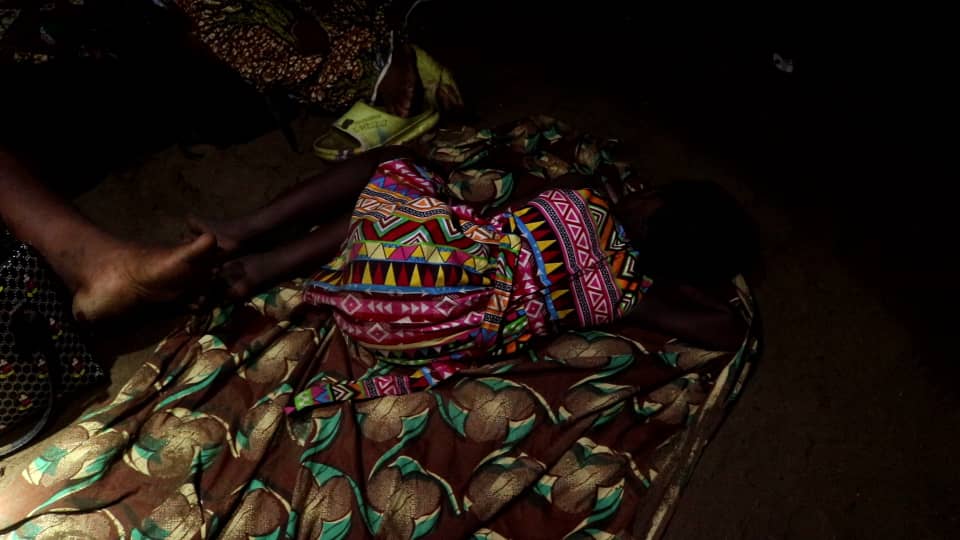Agavedzi, Salakope, and Amutinu—once thriving coastal communities—are now mere shadows of their former selves, ravaged by relentless tidal waves that have destroyed homes, farmlands, and even cemeteries.
This devastation has left hundreds of families stranded, as they grapple to survive in conditions unfit for human dignity.
In scenes reminiscent of a war zone, entire families—men, women, and children—can be found sleeping by the roadside, their only shelter the cold night air and the dim glow of streetlights.
Others have sought refuge in unimaginable places. In Agavedzi, a couple and their children have been forced to live inside a premix fuel facility, sharing space with highly flammable petroleum products, as they have nowhere else to go.
For these families, there is no privacy, no security, and no certainty about what tomorrow holds. Their only possessions are the few belongings they could salvage before the sea claimed everything.
A forgotten promise: the decaying housing project
Amid this human tragedy, a painful reality persists—housing units that were begun years ago to provide shelter for displaced residents remain abandoned and left to deteriorate.
These structures, originally intended to offer hope, now stand as a monument to broken promises, with weeds overtaking the area and the walls crumbling under the weight of neglect.
For those sleeping on the streets, the sight of these abandoned buildings is nothing short of cruel irony. They cannot understand why they must endure such hardship when structures meant for their resettlement remain unoccupied and decaying.
The emotional and psychological toll
The distress among residents is palpable. Parents, once proud providers, now watch helplessly as their children sleep on empty stomachs.
Young mothers cradle their babies on bare ground, shivering through the night. Elderly men and women, who have spent their entire lives in these communities, now wander, unable to accept that they are homeless.
The trauma of exhuming the remains of loved ones—a heartbreaking necessity due to the encroaching sea—has deepened the wounds of the affected.
Some families were forced to dig up the graves of their ancestors, wrap their bones in cloth, and carry them inland in search of a safer resting place. The spiritual and cultural violation of such an act has left many residents in despair.
A deafening silence from authorities
Despite visits from government officials and Members of Parliament to the affected communities, their presence has yielded nothing but empty promises. Residents were assured of interventions, yet no real action has been taken.
While bureaucratic processes continue to be followed, families remain without shelter, food, or a clear plan for relocation.
A call for urgent action
The plight of the people of Agavedzi, Salakope, and Amutinu is a humanitarian crisis that demands immediate intervention. These are not mere statistics; these are human lives being destroyed by the inaction of those in power.
The abandoned housing project must be revived without delay to provide shelter for the displaced. Emergency relief—food, tents, and medical aid—must be sent to those sleeping on the streets. Most crucially, the government must expedite the construction of sea defence projects to protect the remaining communities from further devastation.
If urgent action is not taken, more families will be left homeless, more children will suffer, and more lives will be lost—not only to the tidal waves but also to the neglect and indifference of those in power. The time to act is now. The people of Agavedzi and Salakope deserve better than this.
DISCLAIMER: The Views, Comments, Opinions, Contributions and Statements made by Readers and Contributors on this platform do not necessarily represent the views or policy of Multimedia Group Limited.

